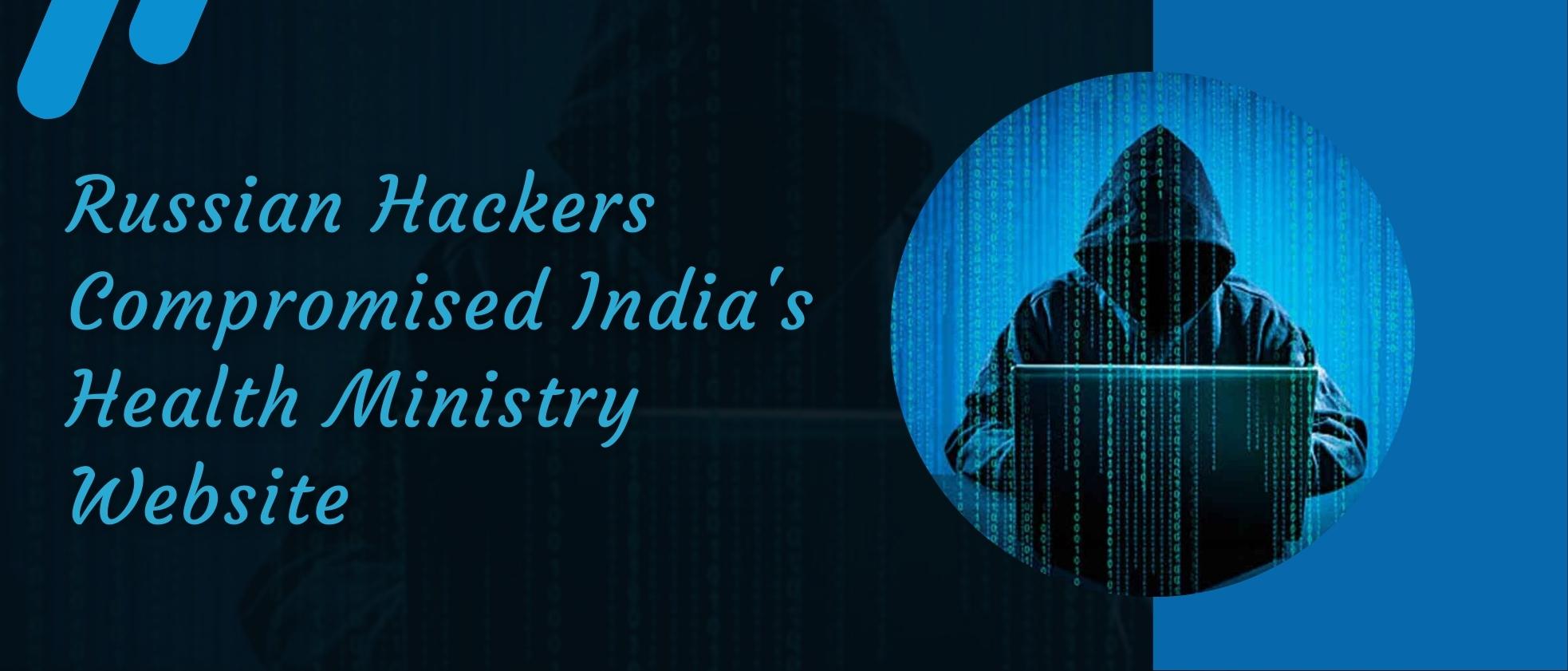Russian Hackers Compromised India's Health Ministry Website

In recent news, it has been reported that Russian hackers have compromised the website of India's health ministry. This is a significant breach of security as it puts the sensitive health data of millions of Indians at risk. Let's take a closer look at what happened and what this means for cybersecurity.
According to reports, the cyber attack on India's health ministry website took place in early March of 2023. The hackers were able to gain access to the website's database and steal sensitive information, including personal data of Indian citizens, medical records, and other confidential information. The attack was initially discovered by the Indian government's cybersecurity team, and they have since been working to contain the damage.
The attack is believed to have been carried out by a group known as APT29, which has been linked to Russian intelligence agencies. The group is known for using sophisticated techniques to gain access to its targets and has been involved in several high-profile attacks in the past.
It is unclear at this time what the attackers' ultimate goal was in targeting the Ministry of Health's website. However, the incident highlights the importance of maintaining strong cybersecurity practices and staying vigilant against potential threats. Organizations should take steps to ensure that their systems and data are secure, and should regularly review and update their security protocols to stay ahead of evolving threats.
The compromised data reportedly includes personal information, such as names and contact details, of individuals who had registered for COVID-19 vaccinations through the website. The hackers are also said to have obtained copies of official documents and correspondence from the ministry.
This is not the first time that Russian hackers have targeted Indian government agencies. In recent years, there have been several instances where Russian hacking groups have successfully infiltrated Indian government networks. In 2019, for example, Russian hackers were able to breach the network of the Kudankulam Nuclear Power Plant in Tamil Nadu, India. This breach led to concerns about the safety and security of India's critical infrastructure.
The Indian government has not yet publicly attributed the health ministry website breach to Russian hackers. However, cybersecurity experts have noted that the tactics and techniques used in this attack are consistent with those used by Russian hacking groups. For example, the hackers are believed to have used sophisticated malware to gain access to the website's database. They may have also used social engineering techniques to trick employees into giving them access to the system.
This incident serves as a reminder of the increasing threat posed by state-sponsored hacking groups, which often have significant resources and expertise at their disposal. It is important for governments and organizations to take proactive steps to protect their systems and data, including investing in robust security measures and regularly conducting vulnerability assessments and penetration testing.
Furthermore, individuals should also be aware of the risks of sharing personal information online and take steps to protect their own digital privacy. This includes using strong passwords and two-factor authentication, avoiding sharing sensitive information on public Wi-Fi networks, and being cautious of suspicious emails or messages that may be attempts to obtain personal data or install malware on their devices.
The breach of India's health ministry website is a stark reminder of the need for robust cybersecurity measures. Governments, organizations, and individuals must take proactive steps to protect their sensitive data from cyber threats. Here are a few things that can be done to prevent similar attacks in the future:
- Keep software up-to-date: Cyber attackers often exploit vulnerabilities in outdated software. Make sure that all software on your system is updated regularly to protect against known vulnerabilities.
- Use strong passwords: Passwords are often the first line of defense against cyber attacks. Use strong, unique passwords for each account and change them regularly.
- Implement multi-factor authentication: Multi-factor authentication adds an extra layer of security to your accounts. It requires users to provide additional information, such as a code sent to a mobile device, before gaining access to an account.
- Educate employees: Social engineering is a common tactic used by cyber attackers. Educate employees about the risks of phishing emails and other types of scams to prevent them from falling victim.
- Conduct regular security assessments: Regular security assessments can help identify vulnerabilities in your systems before they are exploited by cyber attackers.
In conclusion, the breach of India's health ministry website by Russian hackers is a concerning development for cybersecurity. It underscores the need for governments, organizations, and individuals to take proactive steps to protect sensitive data from cyber threats. By keeping software up-to-date, using strong passwords, implementing multi-factor authentication, educating employees, and conducting regular security assessments, we can reduce the risk of similar attacks in the future.
For more information on cyber security services, cyber forensic services connect with ANA Cyber Forensic Pvt Ltd. Call us at +91 - 9011041569
Contact
For more information on how we can help you secure your data, get you compliant and protect your business, please complete the form below and one of Information security / Cyber Forensic expert and Compliance specialists will respond to you as soon as possible.


